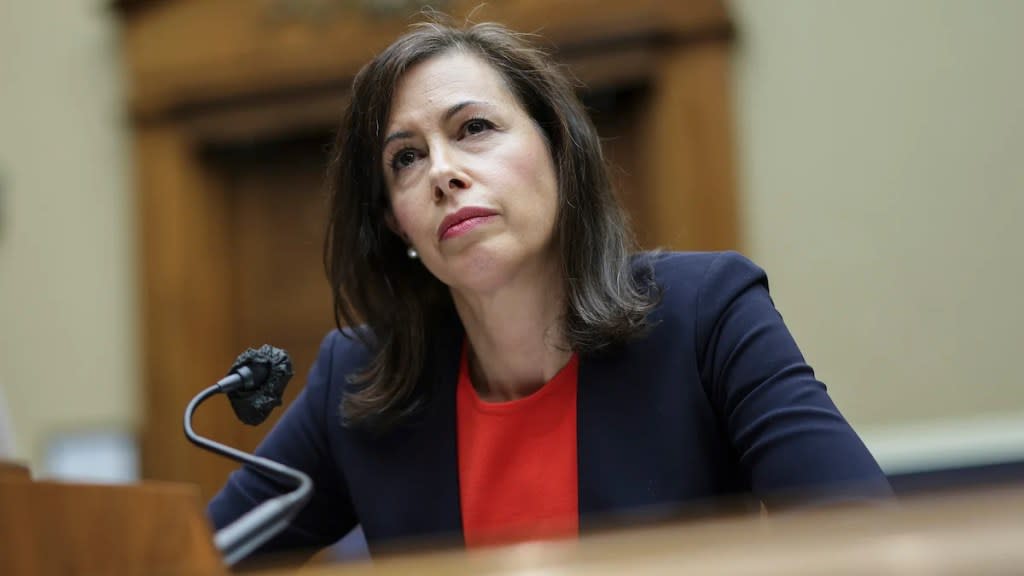Pay TV Early-Termination, Other ‘Junk Fees’ Would Be Banned in New FCC Rules Proposal

Federal Communications Commission chairwoman Jessica Rosenworcel has unveiled a new proposal that would eliminate cable and satellite TV provider “junk fees,” including charges for early termination of service contracts.
If approved during the agency’s December 13 open meeting, the rule would also require providers to grant cord-cutters a prorated credit or rebate for the remaining whole days in a monthly or periodic billing cycle after the cancellation of service.
The FCC argues that early termination fees and billing cycle fees limit consumer choice and negatively impact market competition by making it costly for customers to switch their service. The agency notes that subscribers may terminate their service for a number of reasons, including moving, financial hardship or poor service.
“No one wants to pay junk fees for something they don’t want or can’t use. When companies charge customers early termination fees, it limits their freedom to choose the service they want,” Rosenworcel said in a statement. “In an increasingly competitive media market, we should make it easier for Americans to use their purchasing power to promote innovation and expand competition within the industry.”
The proposal stems from a July 2021 executive order from the Biden administration’s focused on promoting competition in the U.S. economy.
“Companies shouldn’t lock you into services you don’t want with large fees,” Biden wrote in an X post. “It’s unfair, raises costs and stifles competition. We’re doing something about it.”
My Administration just announced a proposed rule that would ban early termination fees for cable and satellite TV.
Companies shouldn't lock you into services you don't want with large fees.
It's unfair, raises costs, and stifles competition.
We're doing something about it.— President Biden (@POTUS) November 21, 2023
In addition to the proposal targeting junk fees, the FCC has proposed “all-in-pricing” for cable and satellite services to ensure that consumers are able to see all costs, including fees, up front.
The agency is also implementing Broadband Consumer Labels, which provide “clear, easy-to-understand, and accurate information about the cost and performance of broadband services” at the point of sale, including online and in-store.
A J.D. Power survey of over 23,500 respondents conducted between October 2022 and August 2023 and released on Nov. 17 found that the likelihood of cable and satellite customers switching their service in the next year is 21%, compared to just 12% for live TV streaming services.
Among the reasons for the growing divide in satisfaction included the cost of the service, performance and reliability and customer care.
“In the past, cable/satellite providers may have been the beneficiaries of their status as a legacy model that had a high degree of difficulty in switching or outright canceling. But these providers can no longer rest on their laurels,” the data and analytics company wrote in its report. “Streamers have always been a more affordable choice, but there was always a trade-off in reliability and customer care. Now, with streamers succeeding in all areas, cable and satellite providers have no choice to step up their game and rise to the occasion. If they don’t, they run the very real risk of fading into the background faster than anyone anticipated.”
Ampere Analysis has forecasted that global pay TV penetration, or the number of pay TV subscriptions relative to the number of households, is expected to record its first annual decline next year, primarily driven in North America and Latin America.
Pay TV penetration in North America has almost halved from a high of 84% in 2009 to 45% in 2023, caused by “a combination of high costs and competition from a mature Subscription Video on Demand (SVoD) market,” according to the firm.
“Despite this decline, the annual revenue generated per user will sit at over $1,100 in 2023 across North America, the highest across any region,” Ampere added.
Despite the projected decline for pay TV, Ampere senior analyst Rory Gooderick anticipates that cable and satellite TV platforms will remain a “powerful force in the TV world, and important distribution partners for streaming products.”
Gooderick cited the recent distribution deal between Disney and Charter Communications, which bundles the entertainment giant’s streaming services into the latter’s TV packages.
“This package structure, already increasingly common in Europe and parts of Asia, offers a framework for traditional cable TV companies to transition their business into a streaming aggregation play, and stabilize subscriber trajectories,” Gooderick said.
The post Pay TV Early-Termination, Other ‘Junk Fees’ Would Be Banned in New FCC Rules Proposal appeared first on TheWrap.

